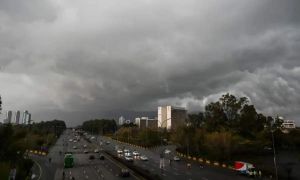On February 24, the United Nations General Assembly passed a resolution condemning Russia's actions during its invasion of Ukraine, marking the third anniversary of the onset of this brutal conflict. The resolution, drafted by European nations, received overwhelming support with 93 votes in favor, including notable backing from Thailand, as 65 countries abstained from voting. It highlights growing global concerns about Russia's sustained aggression, the grim humanitarian impact of the war, and calls for immediate peace negotiations.
Among those expressing denunciation of Russian actions were the UK, which recently imposed sanctions on ten Chinese firms involved with Russia’s defense sector, signaling its commitment to opposing President Vladimir Putin’s regime. UK Foreign Secretary David Lammy stated, “We can’t turn our backs on Ukraine and their fight for collective security,” underlining the gravity of the situation as the conflict enters its fourth year.
On the diplomatic front, the shifting US stance is noteworthy. President Donald Trump has engaged directly with Russian and Ukrainian leaders, advocating for peace talks to cease hostilities. Following conversations with both President Putin and President Volodymyr Zelenskyy, Trump remarked, “He [Putin] wants it to end... I think we’re going to have peace.” His outreach is met with skepticism, particularly from those cautious about negotiating with Russia without firm commitments to Ukrainian territory.
Ambassador Dorothy Shea, representing the United States at the UN, characterized the Assembly’s resolution as not just procedural but as foundational for future peace initiatives, stating, “This motion will lead us to the path of peace. It’s imperative as we move forward to build consensus.” Opposition remains among several European allies, including the UK and France, who abstained from the vote due to concerns about credentials and recognitions of the involved parties.
Prompted by Russia’s continual military engagements and expansionist ambitions, the UN, spearheaded by significant powers, is faced with the dual challenge of promoting peace and ensuring accountability for the aggression shown against Ukraine. The complexity of this geopolitical tension continues to attract the global focus as nations debate the appropriate response.
Further complicity arises with China’s geopolitical maneuvers, as it has been approached by Trump’s administration to mediate peace talks. This was underlined by the Chinese delegation’s readiness to facilitate discussions among conflicting parties, demonstrating their influence on the current global crises.
Despite the backdrop of diplomatic affirmations and sanctions, many hold reservations about the efficacy of mere condemnations without concrete action plans. Calls for military and humanitarian support to Ukraine remain prevalent among its allies, as fears continue about Russian advances and territorial integrity persist. UK Prime Minister Keir Starmer is set to meet with President Trump, hopeful to influence support for Ukraine's sovereignty amid Trump’s mixed signals on military backing.
The international community’s call for unity seems more urgent than ever, especially nearing the anniversary of Russia’s initial invasion when the world watched as Ukraine courageously resisted the intrusion. Activists and Ukrainian officials emphatically stress the need for sustained international support, both moral and material, underlining the message from Ukraine, “We will not back down.”
Reportedly, high-ranking Ukrainian officials have resiliently trained within this grim reality, thankful for the backing from ally nations, they reiterate, “We are deeply grateful for international solidarity and support.” Global focus now shifts to negotiations, with both humanitarian hiccups and peace discussions rendering hopefulness and skepticism across nations.
With the recent UN General Assembly resolution echoing through the corridors of diplomacy, stakeholders must now act to translate verbal acknowledgment of Ukraine’s plight to tangible efforts to secure its future. The world watches as the Great Powers navigate this complex and pressing matter, committed to achieving lasting peace for Ukraine.
No matter the varying approaches, one truth remains clear: unity against aggression is imperative if nations wish to safeguard stability and establish peace within and beyond Ukraine’s borders.



